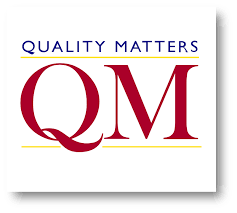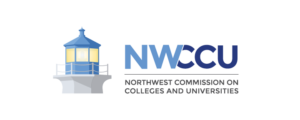Online RN to B.S. Classes and Requirements

A B.S. in nursing from OHSU prepares you for a rewarding nursing career. The curriculum helps you become a skilled nurse.
Quick links:
RN to B.S. program curriculum
To earn your Bachelor of Science with a major in nursing, you'll take upper-division nursing classes online from OHSU. These courses expand upon your knowledge as an RN and help you build health care leadership skills for the future.
- Location: 100% online. Complete classes and clinical activities asynchronously to fit your schedule.
- Length: Nine months (full-time) or up to five years (part-time)
- GPA: Minimum OHSU GPA of 2.0
Still undecided? Sign up to receive more information.
Sample RN to B.S. classes and programs of study
Get a glimpse of program classes and timelines for full- and part-time RN to B.S. pathways.
RN to B.S. student learning outcomes
Completing your RN to B.S. at OHSU prepares you for the next step of your career. The curriculum helps you build your skills as a competent nurse and learn to:
- Base personal and professional actions on a set of shared core nursing values.
- Use reflection, self-analysis and self-care to develop insight.
- Engage in intentional learning.
- Demonstrate leadership in nursing and health care.
- Collaborate as part of a health care team.
- Practice within, utilize, and contribute to all health care systems.
- Practice relationship-centered care.
- Communicate effectively.
- Make sound clinical judgments.
- Locate, evaluate and use the best available evidence.
RN to B.S. degree requirements
You need 180 credits to complete the RN to B.S. program. That includes prerequisites you’ll complete before you start and credits taken at an accredited college or university and OHSU.
Credits required to graduate
Upon completing the OHSU School of Nursing RN to B.S. program, you will meet these graduation requirements.
| Program course requirements | Quarter credits | GPA requirements |
|---|---|---|
| General education and elective classes* | 54 | Minimum 3.0 |
| RN to B.S. core nursing classes | 33 | Minimum 2.0 |
*These courses may be met by a bachelor’s degree or classes from an accredited college or university other than OHSU:
- Humanities classes: 9 credits
- Social science classes: 6 credits
- Statistics: 3 credits
- Upper-division electives: 15 credits
- Lower-division electives: 21 credits
Credits/prerequisites required before you start
You must complete the following prerequisite courses with a C- or better before you start your program.
| Prerequisite courses | Quarter credits |
|---|---|
| Nursing classes transferred to OHSU | 60 |
| Anatomy and physiology, microbiology, human development, nutrition, English and genetics classes | 33 |
Prerequisite coursework requirement details:
Anatomy and physiology
You need 12 quarter credits of human anatomy and physiology with lab. This must cover all body systems. You should:
- Complete the full sequence
- Finish at least one course by the end of the fall term the year before you start the program
- Complete all courses before starting the program
- Take each course no more than twice in the last 7 years
If you've taken a course more than twice in 7 years, we'll use your second attempt's grade.
Microbiology with lab
Microbiology with lab
You need 4 quarter credits of basic microbiology with lab.
Nutrition
You need 3 quarter credits in nutrition. The course should cover:
- Biological functions
- Dietary sources of essential nutrients
- How diet affects health
Human development
You need 3 quarter credits in a human development course that covers the social and psychological development of humans across the entire lifespan, from birth to death. Courses that only cover part of the lifespan won’t count.
Written English/English Composition (WR 121 & 122 or equivalent)
You need 8 quarter credits in English composition. Courses should:
- Develop and support ideas in written English
- Prepare you for scientific or technical writing
Note:
- Remedial English courses don't count
- Writing-intensive college courses can meet this requirement (i.e. WR 121, 122, or 123)
- A non-nursing bachelor's degree from an English-speaking country satisfies this, but you may need extra elective credits to graduate
Introduction to genetics
You need 3-4 quarter credits in a human biology course that includes a human genetics component. The course catalog must specifically mention human genetics. Microbiology or Anatomy and Physiology courses won’t count.
If you plan on pursuing the full-time track, we recommend completing Statistics before applying.
Course equivalency guides
Contact an admissions counselor for an unofficial transcript evaluation.
Online RN to B.S. application requirements
To apply, you must have:
- Associate degree (A.D.N. or A.S.N.) from an accredited community college (or in-progress with plan to complete before starting)
- Current RN license from any state or plan to have one by the end of your first term after starting your RN to B.S. program.
- GPA of 3.0*
*If you have a GPA between 2.5 and 2.99, you may still apply. Please contact Admissions prior to applying.
Compliance items required before you start
Before you start, you must:
- Have completed an associate degree (A.D.N. or A.S.N.) from an accredited community college
- Complete a background check and drug screen (in your home area)
- Sign five short online compliance forms
- Complete online modules (about 3 hours)
- Have a current BLS card
- Have an RN license or pass the NCLEX and receive your license by the end of your first term
You do not need to submit immunization records for this program.
Application deadlines
| Program start | Application Status | Application Deadline |
|---|---|---|
| Summer 2026 | Open | May 14, 2026 |
| Fall 2026 | Open | Aug. 11, 2026 |
| Winter 2027 | Open | Dec. 1, 2026 |
| Spring 2027 | Open | Jan. 31, 2027 |
How to apply
Follow these steps to apply:
- Check application deadlines.
- Go to Nursing CAS and apply. Choose the online RN to B.S., dual admission RN to B.S. to Master’s in Nursing Education or RN to B.S. to Master’s in Nursing: Health Systems and Organizational Leadership. Education.
- Send transcripts to Nursing CAS. Contact Nursing CAS to ensure your transcripts arrive.
Get application details for international students and veterans.
OHSU RN to B.S. program classes
During the RN to B.S. program, you’ll take upper-division nursing classes (300-400 level) at OHSU, totaling 33 credits. You must complete all OHSU courses with a minimum GPA of 2.0.
NRS 427: Practice Integration
3 credits. This course is the first course of the OCNE baccalaureate completion program for RNs. The course transitions students into baccalaureate nursing education. Students will examine aspects of their nursing practice and set professional goals. They will also gain experience using available evidence to inform their practice.
The course is structured around the Oregon Consortium for Nursing Education fundamentals: evidence-based practice, leadership, relationship-centered care and clinical judgment. Forum discussions, reflective portfolios, case studies and other course assignments address each of these fundamentals.
NRS 410A: Population Health Practice
3 credits. This course along with NRS 410B prepares nurses in community and population health. Students are given an opportunity to apply population health principles to address health disparities. Community and population health are examined as a synthesis of knowledge from nursing, public health, the social sciences and epidemiology.
Students analyze prevalent population health issues, explore population interventions and participate with the community to promote quality, culturally proficient, and preventive health care. Frameworks of community and public health are examined, and community assessments are conducted using a systems approach that promotes health literacy and embraces cultural diversity.
NRS 410B: Population Health Practice
6 credits. This course along with NRS 410A prepares nurses in community and population health. Students are given an opportunity to apply population health principles to address health disparities. Community and population health are examined as a synthesis of knowledge from nursing, public health, the social sciences and epidemiology.
Students analyze prevalent population health issues, explore population interventions and participate with the community to promote quality, culturally proficient, and preventive health care. Frameworks of community and public health are examined, and community assessments are conducted using a systems approach that promotes health literacy and embraces cultural diversity. Prerequisites: 410A prior or concurrent.
NRS 411: Epidemiology
3 credits. Epidemiology is the study of the distribution and determinants of death, disease and disability in human populations. In this course, students will learn the basic principles and methods of epidemiologic investigation; examine studies of the distribution and dynamic behavior of health determinants; understand etiologic factors, modes of transmission and pathogenesis; and explore concepts in social epidemiology. Applying epidemiologic case studies, students will engage systems and complex thinking to evaluate programs and policies in population health and nursing.
412RA: Professional Nursing in Health Policy and Health Care Delivery Systems
3 credits. The course examines the role of the nurse as a leader in nursing and in health care. Focus is on the role of the professional nurse in the broader health care delivery system. Legal, ethical, regulatory, and political factors influencing patient/population health provide context to the learning.
412RB: Nursing Leadership: Health Care Culture and Collaborative Practice
3 credits. This course examines the professional nurse's role within health care teams and the broader health care system. Emphasis placed on the influence of the nurse on health care culture, interprofessional team dynamics, and overall quality and safety of complex systems. Examination of concepts such as complex adaptive systems, Just Culture, interprofessional collaboration and accountability will occur.
412RC: Nursing Leadership and Management in Health Care
3 credits. In this course the learner considers their role as a leader in nursing and in complex health care systems. Students will examine nursing leadership competencies, behaviors, and skills including their own leadership and followership styles. Self-reflection on leadership behaviors and strategies for professional development will be explored.
412RD: Nursing Leadership Practice in Quality Improvement
3 credits. In this course, the learner will analyze their role in nursing and health care. Focus is on the knowledge and skills required to improve health care delivery and client outcomes from quality and safely perspectives. The learner will lead, collaborate and implement a quality improvement project (QIP) in a health care organizational system. The clinical prepares the learner for their role as a baccalaureate prepared registered nurse in any health care setting.
NRS 426A: Integrative Practicum
6 credits. This course provides the student with the opportunity to deepen their understanding of and competence in the nursing care of the selected population. Emphasis is on the health care needs of selected populations, and the associated systems and policy issues surrounding them. Includes self-directed study and clinical learning experiences.
Nursing electives
Complete your upper-division requirements with flexible, fully online nursing electives. All courses are asynchronous. You’ll have at least two options each term, with expanded offerings during summer.
NRS 440: Ambulatory Care Nursing Practice
5 credits. Offered summer and winter. Today’s nurse practices within the dynamic evolution of the traditional health care landscape. Health care is shifting away from episodic, downstream, hospital-based acute care into care provided within diverse ambulatory care settings, using a health prevention and promotion primary care model focused on population health, quality of care and value of services. This course intends to introduce students to nursing practice within this evolving and dynamic ambulatory care environment. First evaluated and defined is the impact of high functioning ambulatory care on health care cost, outcomes and experience. Next, focus is given to the value of the nursing professional role within the ambulatory care delivery model, as well as within collaborative partnerships. Students examine ambulatory models of care and initiatives through which nurses lead the coordination and management of complex and at-risk populations, those with chronic diseases and those transitioning between health care settings. Next students examine the role technology and informatics have on the ability of the ambulatory nurse to deliver and increase access to health care. Finally, barriers and opportunities to fully optimize the ambulatory nursing role are evaluated.
NRS 441: Value-Informed Nursing Practice
5 credits. Offered summer and spring. This course intends to prepare nurses to advocate for and lead value-informed nursing practice. Students examine core principles of value within health care systems including why payment models are transitioning from fee for service to value based. The concept of “Value Informed Nursing Practice” is examined through historical, economic, financial, environmental, scope of practice and ethical foundations. Also analyzed are the historical, current and future algorithms and methods used to determine and measure the value and impact of the nursing role itself. Students have the opportunity to research, create, propose and advocate for an innovative, nurse-driven patient or community facing intervention aimed at reducing waste and improving the value of care.
NRS 442: Advanced Topics in Palliative & End of Life
5 Credits. Offered summer and fall. This course equips students with the information and skills needed to provide high-quality palliative and end of life care across diverse practice settings, addressing the assessment and management of contemporary challenges in palliative care. The course delves deeply into the impact of chronic and end-stage disease processes on individuals across various developmental stages and prepares students to assess and address the physical, psychological, social and spiritual needs of patients and families, navigate complex ethical and legal issues and collaborate effectively in interprofessional teams.
NRS 443: Promoting Healthy Aging in the Older Adult
3 credits. Offered summer and fall. This elective course offers nursing students advanced concepts and an evidence-based understanding of caring for older adults, emphasizing best practices, advocacy and effective transitions of care. It explores the multifaceted role of nurses in delivering holistic, person-centered care to enhance healthy aging, preserve dignity and optimize physical, cognitive, psychosocial and functional well-being. A comprehensive examination of aging-related physiological changes, psychosocial dynamics, cognitive health, environmental influences and the complexity of care transitions allows students to develop critical competencies in assessing, planning and implementing interventions to support aging populations across diverse health care settings, communities and societal frameworks. Integrating contemporary research, policy considerations and interdisciplinary collaboration while fostering advocacy skills to empower older adults, address age-related disparities and navigate transitions of care to ensure continuity, safety and quality in geriatric health care.
NRS 444: Nursing on the Frontlines: Nursing Readiness for Disaster Response
3 credits. Offered winter. This course is designed for students who seek to deepen their knowledge and skills in public health emergencies and disaster management. It provides an understanding of the impact of various disasters on individuals, communities, the healthcare system, and public health and the role of nurses in disaster management and response. The course focuses on the role of nurses in various disaster situations, developing critical thinking and decision-making skills necessary for effective disaster nursing. Students will learn to apply disaster principles, perform advanced assessments, manage trauma care, and coordinate effectively within incident management systems, gaining practical skills for real-world events.
NRS 445: Motivational Interviewing in Nursing
2 credits. Offered spring. This nursing elective course provides an in-depth exploration of Motivational Interviewing (MI), a patient-centered communication technique aimed at enhancing patient engagement and behavior change. Students will review the MI core principles and focus on strengthening their ability to engage patients in health/behavior-related conversations. The course also addresses the importance of cultural sensitivity and ethical considerations in MI. By the end of the course, students will be equipped to apply MI in their nursing practice to effectively motivate and support patients toward improved health outcomes. This course is ideal for nursing students preparing for roles in clinical settings where patient engagement and behavior change are critical to improving health outcomes.
Recommended prerequisites: Completion of previous introduction to motivational interviewing content or workshop.
RN to B.S. program faculty
Our faculty and entire team are here to help you succeed in this high-quality online program.
RN to B.S. program leaders
RN to B.S. nursing instructors
Nursing scholarships
$2,000 for every new RN to B.S. student.
Related links
Contact us
Ask us anything about our nursing programs, events and why OHSU School of Nursing is a special place to learn and grow.
- Ask admissions
- Attend an information session
- 503-494-7725 (local) or 866-223-1811 (toll free)
RN to B.S. to M.N. pathways
If you’re pursuing your RN to B.S. in nursing and want to continue to an M.N., you can apply to both the RN to B.S. and M.N.E. or HSOL program with one application. This lets you move directly into the M.N. program after completing your B.S.
Hear from students
"Every time I interacted with an instructor or other program staff member, they demonstrated that they are here to support my success in the program."
— Delia Lagos, RN

QM-certified online learning
OHSU RN to B.S. courses meet Quality Matters’ rigorous standards for quality, design and accessibility in online education.

Accreditation
OHSU is accredited by the Northwest Commission on Colleges and Universities (NWCCU) an institutional accrediting body approved by the U.S. Department of Education.